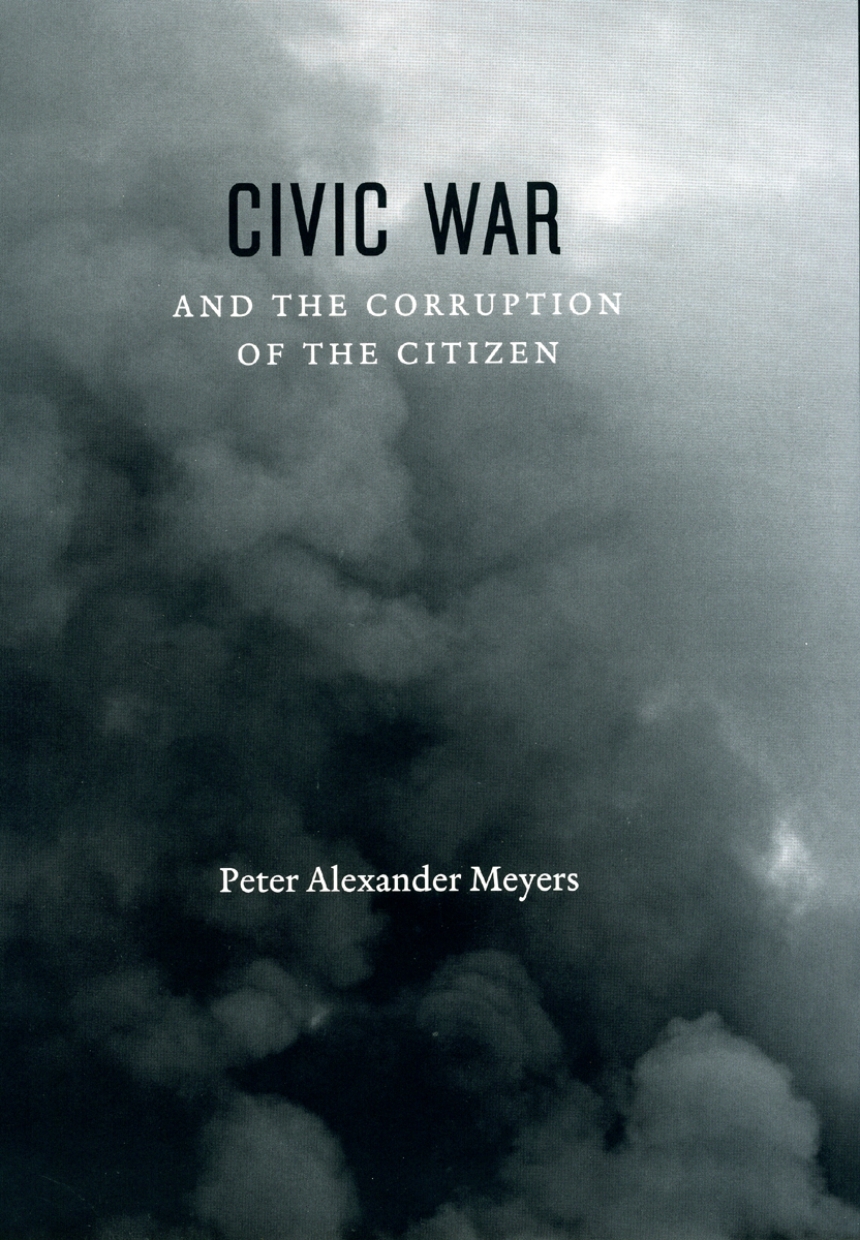Civic War and the Corruption of the Citizen
In this unique book, Peter Alexander Meyers leads us through the social processes by which shock incites terror, terror invites war, war invokes emergency, and emergency supports unchecked power. He then reveals how the domestic political culture created by the Cold War has driven these developments forward since 9/11, contending that our failure to acknowledge that this Cold War continues today is precisely what makes it so dangerous.
With eloquence and urgency Meyers argues that the mantra of our time—“everything changed on 9/11!”—is false and pernicious. By contrast, Civic War and the Corruption of the Citizen provides a novel account of long-term transformations in the citizen’s experience of war, the constitution of political powers, and public uses of communication, and from that firm historical basis explains how a convergence of these social facts became the pretext for unprecedented opportunism and irresponsibility after 9/11. Where others have observed that our rights are under attack, Meyers digs deeper and finds that today “government by the people” itself is at risk.
Sparkling with historical and philosophical insight, this is a dramatic diagnosis of the American political scene that at once makes clear the new position of the citizen and the necessity for active citizenship if democracy is to endure.
376 pages | 6 x 9 | © 2008
History: American History
Philosophy: Philosophy of Society
Political Science: American Government and Politics, Diplomacy, Foreign Policy, and International Relations, Political Behavior and Public Opinion, Political and Social Theory
Sociology: Individual, State and Society
Reviews
Table of Contents
Port of Entry
1 From Shock to Terror
2 From Terror to War
3 The Circle of War and Emergency
4 The Regeneration of Emergency through Violence
5 The Cold War Is Not Over
Notes
Works Cited
Index
1 From Shock to Terror
2 From Terror to War
3 The Circle of War and Emergency
4 The Regeneration of Emergency through Violence
5 The Cold War Is Not Over
6 The Distemper of Monocracy
1 The Cold War Today
2 Today’s Cold War in the System of Civic War
3 Civic War and the Monocratic Tendency
4 Two Poles of Power: Monocratic Omnipotence and Jeffersonian Justification
5 Phases of Communication: Secrets, Lies, and Publicness
6 The Export of "Moral Clarity"
7 The Cold War Comes Home: The Revival of Reaganism
8 The Breeding Ground of Monocracy
9 The Constitution of Power and the Corruption of the Citizen after September 11th
1 The Cold War Today
2 Today’s Cold War in the System of Civic War
3 Civic War and the Monocratic Tendency
4 Two Poles of Power: Monocratic Omnipotence and Jeffersonian Justification
5 Phases of Communication: Secrets, Lies, and Publicness
6 The Export of "Moral Clarity"
7 The Cold War Comes Home: The Revival of Reaganism
8 The Breeding Ground of Monocracy
9 The Constitution of Power and the Corruption of the Citizen after September 11th
Notes
Works Cited
Index
